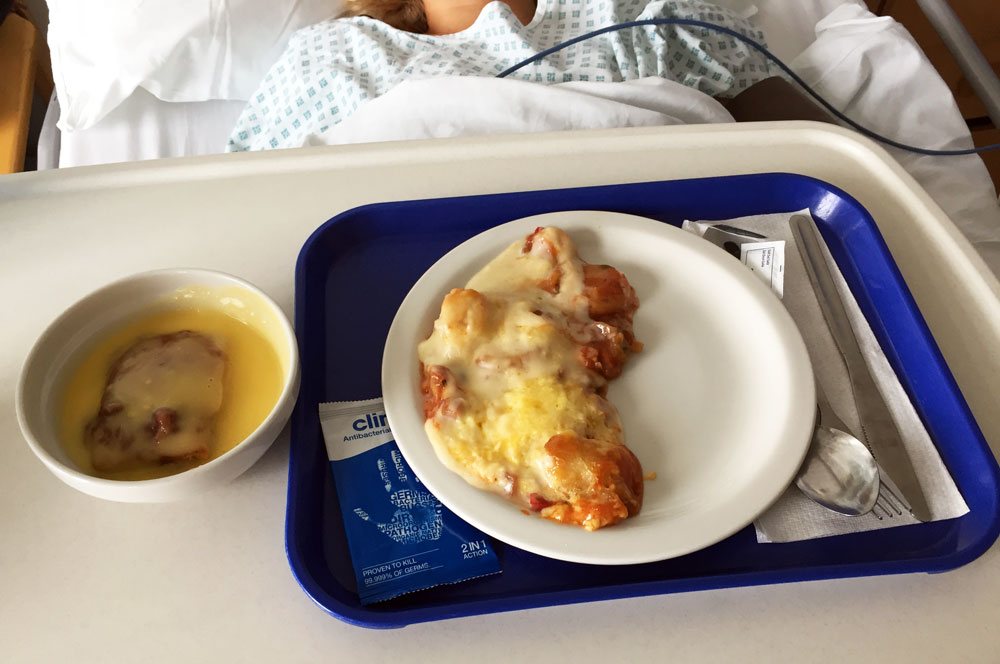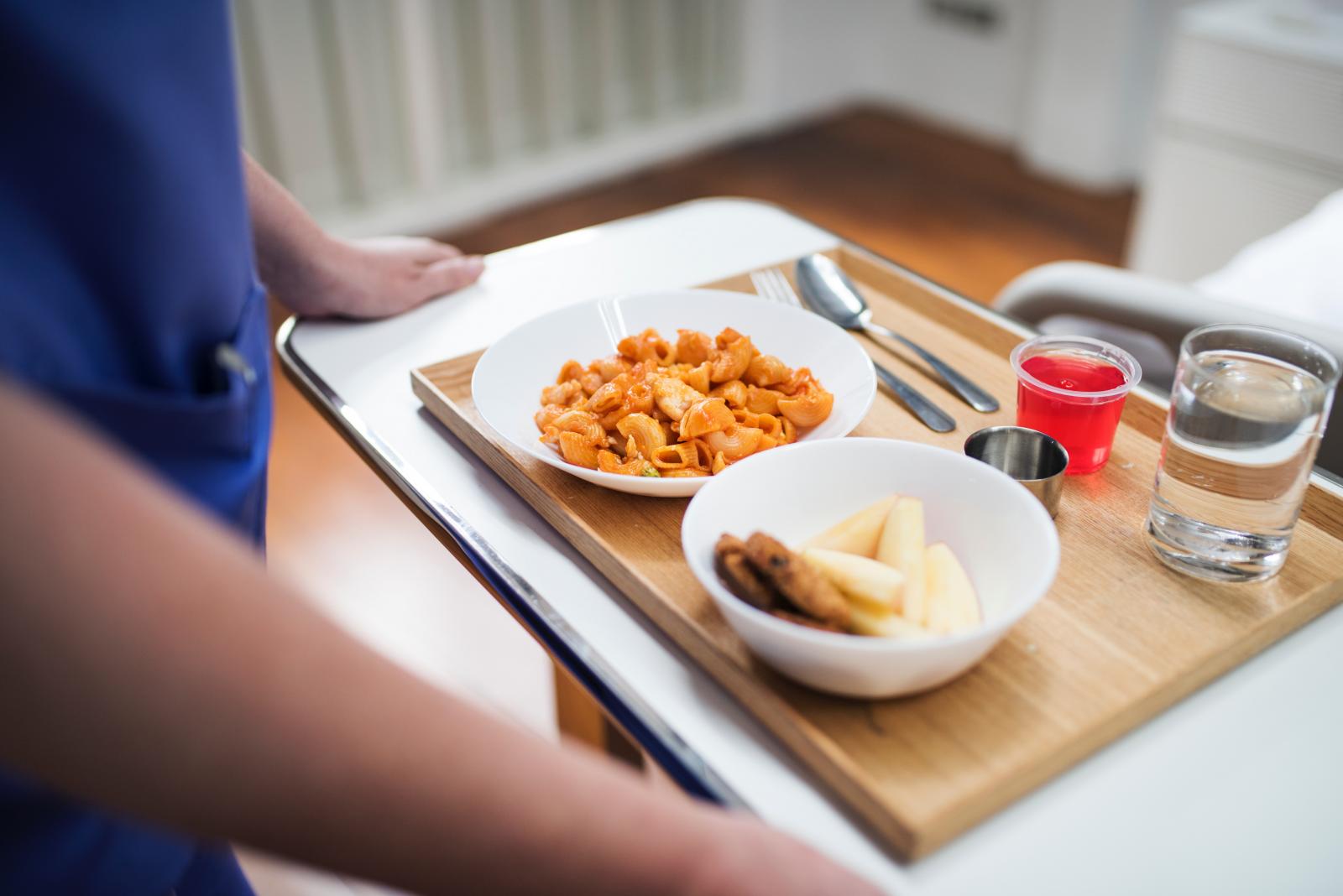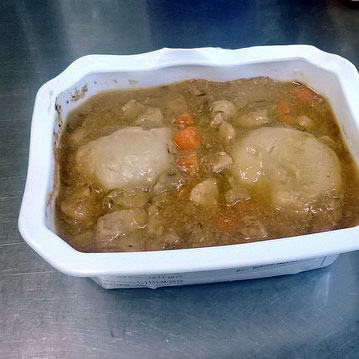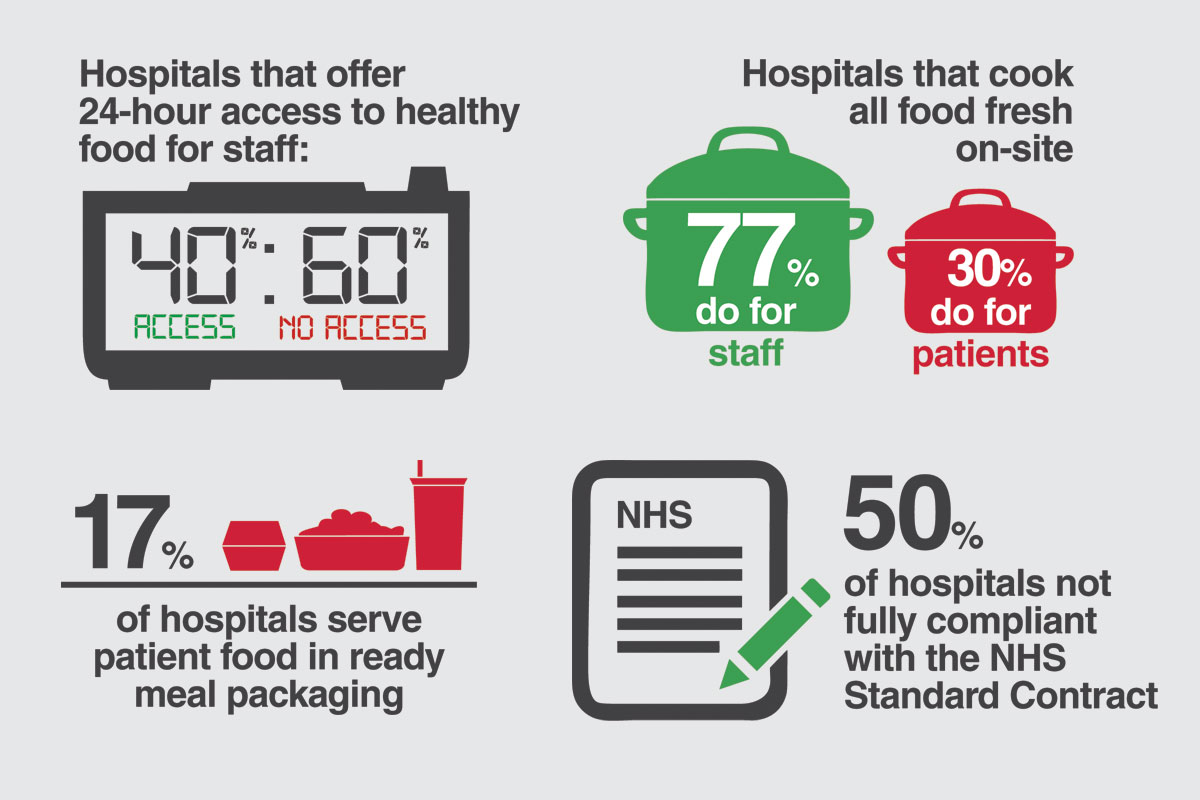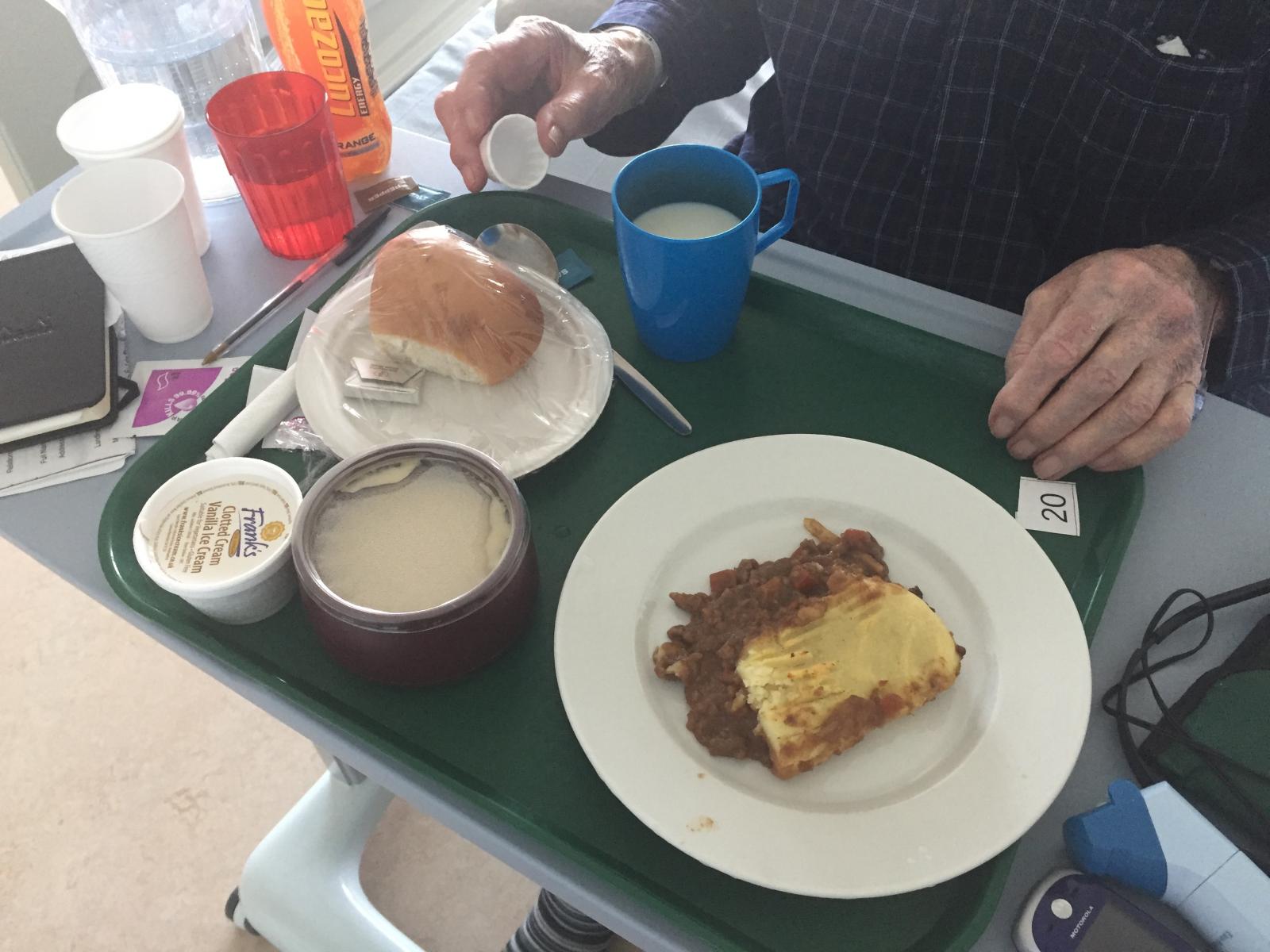Hospital food in England too unhealthy to be served to patients in Wales and Scotland
A pilot study has revealed that unhealthy patient meals in England are contributing to heart disease and stroke, and would be banned from hospitals in Wales and Scotland for failing strict nutritional standards.
The study [1] of thirty five hospital ready meals served to patients in England found:
- Approximately twenty seven out of thirty five meals would be given a red (high) traffic light for saturated fat or salt content under the Food Standards Agency’s traffic light model [2].
- Five meals contained more saturated fat than the NHS recommends is eaten in a whole day [3].
- One ready meal would be banned from Welsh and Scottish hospitals for containing too much salt.
Eating too much food packed with saturated fat and salt contributes to the incidence of heart disease and stroke [4], which cost the NHS approximately £14.4 billion a year [5].
The hospital food study found that hospital dishes served in England would fail to meet NHS healthy eating recommendations [3] and strict nutritional standards set for Welsh and Scottish hospital patients [6]. It identified a triple cheese pizza served to patients in England which alone contained one and a half times more saturated fat than the NHS recommends is eaten in a whole day. It also identified a single hospital cannelloni dish containing more salt than Welsh and Scottish patients are allowed to eat daily.
Concern about the affect of poor diets on health, particularly on the development of heart disease, stroke and type two diabetes, prompted the Scottish Government to set nutritional standards for hospital food in 2008, and the Welsh Government to do the same last year. Despite public support for hospital food standards in England, Health Minister Simon Burns MP has so far ruled out the possibility of setting mandatory hospital food standards, stating that Government would prefer to “move forward on a voluntary basis” [7].
The Campaign for Better Hospital Food [8] is calling on the Government in Westminster to follow the lead of both the Scottish and Welsh Governments and set binding nutritional standards for hospital food served in England.
Alex Jackson, Co-ordinator of the Campaign for Better Hospital Food, said: “hospital food shouldn’t be damaging to patient health, it should be seen as the simplest form of medicine. With recent changes to the NHS it’s more important than ever that the Government acts to address failures in hospital care, including poor hospital food. Setting standards for hospital food would improve its quality, make it healthy to eat and put patients on the road to recovery”.
For more information please contact Alex Jackson on Tel: 0203 5596 777 or at alex@sustainweb.org.
Notes to editor
[1] A pilot study is intended to test the methods and likely results of a more comprehensive study.
In May 2012 we collected menus from seven hospitals in England to find out what meals they are serving to patients and identified similar meals from the NHS Supply Chain product list. NHS Supply Chain is the single biggest provider of meals to NHS hospitals in England. More details can be found at: http://www.supplychain.nhs.uk/product-areas/catering/.
From the hospital meals we identified on NHS Supply Chain’s product list we selected twenty five meals and traced them to their original suppliers. We were able to analyse the nutritional value of these meals using information publicly available on the websites of the original suppliers. In some cases, the supplier did not specify the total weight of the hospital meal. In this instance we calculated that the meal would weigh 400g which is the standard weight of supermarket ready meals.
In August 2012, we selected an additional ten hospital meals from the NHS Supply Chain product list and examined them for their nutritional content. We added these ten meals to the existing list of twenty five meals.
[2] Traffic light colour coding is based on Guideline Daily Amounts (GDAs) and is intended to show you at a glance if the food has high, medium or low amounts of fat, saturated fat, sugars and salt. For more information please go to: http://www.food.gov.uk/multimedia/pdfs/frontofpackguidance2.pdf
Ref 7 - Nutrient profiling system cut offs
| Green (Low) | Amber (Medium) | Red (High) | |
| Salt | ≤ 0.3g/100g | >0.3 to ≤ 1.5g/100g | >1.50g/100g or 2.40g / portion |
| Saturated Fat | ≤ 1.5g/100g | >1.5 to ≤ 5.0g/100g | >5.0g/100g or >6.0g / portion |
[3] Guideline Daily Amounts (GDAs) are intended to help make dietary choices. They specify the approximate amount of particular nutrients and calories recommended for a healthy diet. For more information please go to: http://www.nhs.uk/Livewell/Goodfood/Pages/food-labelling.aspx#Gu.
[4] National Institute for Health and Clinical Excellence: http://www.nice.org.uk/newsroom/pressreleases/PressReleaseCVDPrevention.jsp.
[5] British Heart Foundation Health Promotion Research Group, Department of Public Health, University of Oxford. Coronary heart disease statistics 2010 edition by Peter Scarborough, Prachi Bhatnagar, Kremlin Wickramasinghe, Kate Smolina, Colin Mitchell and Mike Rayner: http://www.bhf.org.uk/research/statistics/economic-costs.aspx
[6] Scottish Government. Food in hospitals: National Catering and Nutrition Specification for Food and Fluid Provision in Hospitals in Scotland: http://www.scotland.gov.uk/Resource/Doc/229423/0062185.pdf.
Welsh Government. All Wales Nutrition and Catering Standards for Food and Fluid Provision for Hospital Inpatients: http://wales.gov.uk/docs/dhss/publications/120305nutritioncateringstandardsen.pdf.
[7] Statement by Simon Burns MP on BBC Radio 4 Today programme, 28 December 2011: http://www.simonburnsmp.com/index.php?option=com_content&view=article&id=299:simon-burns-there-is-wide-variation-in-quality-of-hospital-food-28-december-2011&catid=34:latest-press-releases&Itemid=53.
[8] Campaign for Better Hospital Food: http://www.hospitalfood.org.uk/.
Published Wednesday 29 August 2012
Better Hospital Food: The campaign represents a coalition of organisations calling on the Westminster government to introduce mandatory nutritional, environmental and ethical standards for food served to patients in NHS hospitals in England.
